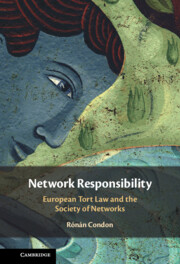3 - Currents and Counter-Currents in Contemporary Law
Published online by Cambridge University Press: 14 July 2022
Summary
The emerging society of networks is no longer tied to territorial differentiation. The network form causes a rupture with established models of liability (individual or organisational liability), undermines the public/private liability divide, and also their regulation, now beyond the state. This third rupture in the knowledge base of society creates profound challenges for tort law. So far, the response in tort law has largely been deferential to definitions of acceptable risk that emerge from governance networks beyond territorial borders. This is explained by the uneven de-territorialisation of functional systems (economy vs law, and politics), and in particular by the failure of tort law to develop a convincing model of ascription for network failures. The chapter has two main tasks; first, it locates these problems within EU law because it is considered an avant-garde experiment in governing a society of networks. It is claimed that its product liability law offers novel solutions to problems of risk-responsibility under conditions of uncertainty. It also deepens our understanding of tort law as a venue for providing contestory, discursive spaces when systems discourses collide.
- Type
- Chapter
- Information
- Network ResponsibilityEuropean Tort Law and the Society of Networks, pp. 116 - 154Publisher: Cambridge University PressPrint publication year: 2022

